My dad for the longest time thought that I would make my money through busking. He legitimately thought that my job would be to go out on the street to play music and collect people’s coins.
What’s worse than making a bad first impression? Not living up to the widespread reputation that you’re one of the nicest, most likable humans around. SG Lewis, a most personable and charming guy working in music today we can confirm, wouldn’t know anything about that. Until this week, we had only observed the guy from a distance. When Anthem stopped by to check out his live set at Elsewhere in Brooklyn last fall—admittedly a hazy experience what with the smoke escaping an unnamed, blazed friend clouding our vision that night at every opportunity—we would squint to find that the exuberant smile stretched across his face is not only genuine but apparently eternal.
At the forefront of a new wave of musical multi-hyphenates known for both putting on killer live shows as well as taking a highly technical and meticulous approach to making sparkling electronic gems, SG Lewis has become one of the UK’s most prominent rising stars over the past few years. The 24-year-old producer, singer-songwriter, DJ, and multi-instrumentalist first garnered attention in 2014 for his remix of Jessie Ware’s “You & I (Forever)” and has since dropped a handful of EPs and singles, featuring collaborations with the likes of AlunaGeorge and Gallant. Last year, the production whizz unveiled the first two chapters of his three-part concept album Dusk, Dark, Dawn, which chronicles the mood changes that inevitably occur through the arc of a fun night out.
Anthem linked up with Lewis before he hit the stage for a live performance at Yes24 MUV Hall and a DJ set at Henz Club in Seoul, South Korea for a photoshoot and an in-depth conversation.
The final installment in SG Lewis’s debut trilogy album, Dawn, is due in April.
Congratulations on “Hurting” reaching #1 on the Billboard Dance/Mix Show Airplay chart.
Thank you so much! It’s been kind of crazy and amazing to see this long-tail life. We put it out 7 or 8 months ago now and just watching it slowly grow, over in the U.S. especially, has just been amazing. In this modern streaming age, there’s a habit of songs going out and the first week there’s this initial burst and the music is then disposed of and fades away. So it’s really cool to experience this long-tail growth on “Hurting.”
When I saw you live last fall, that’s the song that got lodged in my head straightaway.
Really? Sick! Thank you, man. It’s cool because it’s the first real club record that I think I made. I’m more known for downtempo electronic stuff, but it’s fun to push myself into a more high energy environment, and to also do it in a way that feels honest to myself and feels unique to myself as well.
Do you know when you’re working on a track like “Hurting” that it’s extra special?
Yeah! I mean, to a certain point… All you ever know is how much you love it. I definitely knew that I loved it. Every time I listened to it, it made me feel good and I wanted to listen to it more. That’s really about as far as I can go. There’s no way of me being like, “This is gonna be the one that’s on the radio,” because I’m not really thinking about that. I’m just thinking about how that song satisfies me creatively. I had a good gut feeling about it, but I couldn’t really define exactly what that meant, you know?
I was dining out this week at a local chain in South Korea and thinking up some questions to ask you today. “Hurting” came on their speakers.
No way! Shit, that’s crazy. That’s what’s been cool. I remember going to Tokyo like a year ago and playing to a couple of people. They didn’t really know my music well. But then I played a DJ set in Tokyo this time and I played “Hurting” and it was like everyone in the room was waiting for me to play that record. It was a nice moment. It was cool to recognize that song was kind of spreading and becoming bigger than the sum of its parts. It’s been a crazy journey so far and I’m excited to see where it goes next.
When you see your global reach, does it make the world feel bigger or smaller?
Definitely smaller. I’ve been so, so fortunate to travel to most continents now. All of a sudden when you end up flying as much as you do, the world just gets smaller. You suddenly realize that everywhere is within like a 24-hour flight away. When you’re traveling around and you’re seeing how this thing that me and Aluna made—just the two of us in the studio with no one else involved, kind of created out of nothing—spread around the world, it’s just the most surreal thing. But it makes the world seem very real at the same time.
Are you hitting up any new cities on this Asia tour?
I hadn’t been to Bangkok before so it was cool to see. The show there was awesome.
You’ve been to Korea before, right?
We came for a festival last summer. It was so hot. It was the hottest show I’ve ever played. We were playing at 3PM or something and the sun was beating down. Every time the sun went behind a cloud, the crowd got really big and everyone was enjoying it, and when the sun came out, everyone went to hide in the shade. [Laughs] The crowd was growing and then shrinking depending on where the sun was in the sky. I was on stage sweating so much. I had a cap on and by the time I came to singing “Warm,” the sweat was running into my eyes so much that I couldn’t see. I sang “Warm” with my eyes closed the whole time. It was crazy.
You’re just a puddle in a hat at that point.
[Laughs] Yeah!
You’re in the middle of rolling out this really cool debut concept album Dusk, Dark, Dawn. You once told GQ: “I think a lot about the purpose of music.” What is the purpose of music for you as an artist?
Whenever I’m making music, in the back of my mind is always like, “What is the purpose of this song? What is the environment in which it is enjoyed? What emotion is it trying to convey? Who are the people enjoying it?” But it’s not like I sit there ticking boxes. It’s more that, as a listener of music, I have different music for different purposes, you know? If I’m gonna cook some food, I might put on some D’Angelo. If I’m gonna go party, I might listen to some old disco records. If I’m gonna really party, maybe I’ll put on some techno records. So it’s different music for different settings. This morning, I’ve been a bit ill so I was feeling a bit rubbish when I first woke up. I have this old soul playlist that has Bobby Caldwell, Al Green—all these soul legends—and that made me feel better. Really, that’s always in my head when I’m making music: “Okay, so what’s this song for?” or “What is this project for?” That really is the core principle behind this whole project. I wanted to create three different worlds with three different purposes, and for those three different parts to represent three different stages of the night out. So many of my formative experiences in music were through going out and experiencing music in a live context.
A callback to your past and a tribute to club culture.
Yeah, absolutely. So much of my formative music education was through clubs: going out in Liverpool and experiencing music in that context, and also that experience of going out as a young person and recognizing that it wasn’t just club music that’s involved. If you’re going out, you’re gonna meet at your friend’s before to pre-drink or whatever. The music that you play at that stage of the night is gonna be different to the music you’re gonna listen to once you get in the club, which is gonna be different once the club hits peak time and peak energy, which is then gonna be different to the music once you leave the club and you’re like chilling out afterwards, and then to the music the morning after. There’s so much music that is involved in this trajectory of energy across the night. That’s what I found so interesting: when people think of club culture and club music, they think of 125, peak time, 4/4 music. There’s a lot more music to the story.
It’s so easy to look at going out as a shallow experience: getting drunk and partying. I’ve had some amazing emotional connections in those live music environments. Say you’ve been listening to a song over a year and that song is attached to some memories you have or represents some kind of friendship you have with someone, or you go to a music festival and it’s 2AM and your favorite artist is playing that song. It’s that moment. It’s almost spiritual. It’s about highlighting the depth behind those connections and highlighting the pockets of beauty in club culture and club music that represents something much deeper than just going out and having a good time.
Speaking of connections, something just came to mind because I know you field a lot of questions about Pharrell. Oprah interviewed him one time and they watched a clip together of people around the world singing and dancing along to “Happy.” She made that guy cry on national TV. You seem like somebody who so wants to connect through music, as he does.
I do talk about Pharrell a lot. [Laughs] Pharrell is super spiritual with his music. It’s so easy to sound corny when speaking about it, but music is the deepest, most spiritual thing that we have on this planet. It’s the closest thing to like real life magic. It’s the one thing that can bring people together across the world, I guess. It’s hard to talk about that without sounding corny, but it’s true.
“Blue” is the first single from Dawn. Is a track like that ultimately more precious to you because you not only self-produced it but you sang it?
Yes and no. I’m really proud of the fact that I produced it, I sang it, I vocal-produced it, I mixed it, you know? I’m really proud of the fact that I can stand behind something and it wasn’t like 20 people built it. This is me and two of my best friends who helped write the lyrics and we made this thing. The more that I can do on my own, I’m honestly proud of that fact. However, I’m always gonna be a producer first and foremost so I’m always looking for what the song requires. If I feel like my voice is the right voice for that song, then I’m gonna use my own voice. If I know that somebody else’s voice is gonna be better, then there’s no less credit in using somebody else’s voice. Really, as much as I’m proud if I can do more, it’s about creating the best music possible. There’s no discredit in how music is made in my eyes. The only thing that really matters is how good the end product is.
There’s always an air of mystery around how hit songs actually come together behind-the-scenes. I wanted to ask you about the music-writing camp you visited last summer. What did you learn there?
Yeah! So what was interesting about that was, as a songwriting camp, you had some of the best songwriters in the world in this house. You kind of imagine on paper that it’s gonna be this really stiff upper lip, strict environment of professional writers where you write from one o’clock til five o’clock, but it can’t be further from the truth. This house is full of these creative people hanging out and having a good time and playing pool and drinking. It’s almost like the music just happens as a result of those connections that these people make. I think that you just blink and you miss it, but if you pay close attention, you learn the details of why these people are so great at what they do. All these people are enormously talented, you know? They’re so hugely experienced. They know what works. They have been playing for long enough to know what chords and melodies work in crafting songs as well. What was really amazing was to work on some songs. I think there’s a lot of good songwriters and there’s people who can come up with great ideas—you can write a song in 20 minutes and it can be great—but the really great songwriters go in on a song and change details and work on it and keep working on it for hours and hours and hours until it’s perfect. What I came away with is that I need to work harder and be better and to really craft the songs as good as they can be, rather than just going, “That felt good. I’m going to leave it as it is.” I learned so much int hat camp. It was such a cool experience.
You’re obviously working at a high level now, but I know when you were first starting out your dad didn’t really understand your ambitions. He’s not from that world. Was there a milestone in your career where he started to really understand what this was all about?
Yeah, it’s crazy because my family really was not musical. My brother played instruments and stuff, but my parents didn’t have a go at it. I was the only one that—the first one in my family—wanted to do this for a living. They were supportive, but they just didn’t know what they were supporting. My dad for the longest time thought that I would make my money through busking. He legitimately thought that my job would be to go out on the street to play music and collect people’s coins. He thought that would be my living for the rest of my life. I think the moment that he kind of made the switch was signing a record. All of sudden he was like, “Oh! There’s money! That’s how you make money.” But then I think it was also him coming out to Coachella when I played it the first time and seeing this world. He’d never been to music festivals, and once he saw me in that environment and saw people come watch my set and singing the songs, I think that’s when it kind of clicked for him. Definitely.
Coachella is gonna be so cool for you this year.
Dude, I’m so excited.
April is a big month! You’re also supporting on that Jaden Smith show in L.A.
That’s right. I’m so excited for April. I was very lucky to get on the Coachella line-up three years ago. I’d put out my first song. I was super lucky. I got synced on Ballers on HBO and all of a sudden I was on the Coachella line-up. I didn’t really have a live set. I just played a DJ set in the Yuma tent and it was great fun. This really feels like the first time that I’m bringing the live show—the true representation of my music in a live context to Coachella. I’m so, so excited to share it and for people to see it. I hope it’s gonna be a moment. I haven’t done many support slots, but I look forward to playing those different cities for two very different acts. [Lewis is also supporting RÜFÜS DU SOL in Santa Barbara.]
So when can we expect Dawn?
It’s in April. What day is it today? There’s a new song in a week.
Cool!
Yeah! In fact, this song is going out Friday. It’s a new song with me and Clairo.
“Better” is great.
Thank you! It’s super different to “Better.” I’m really excited to share it.
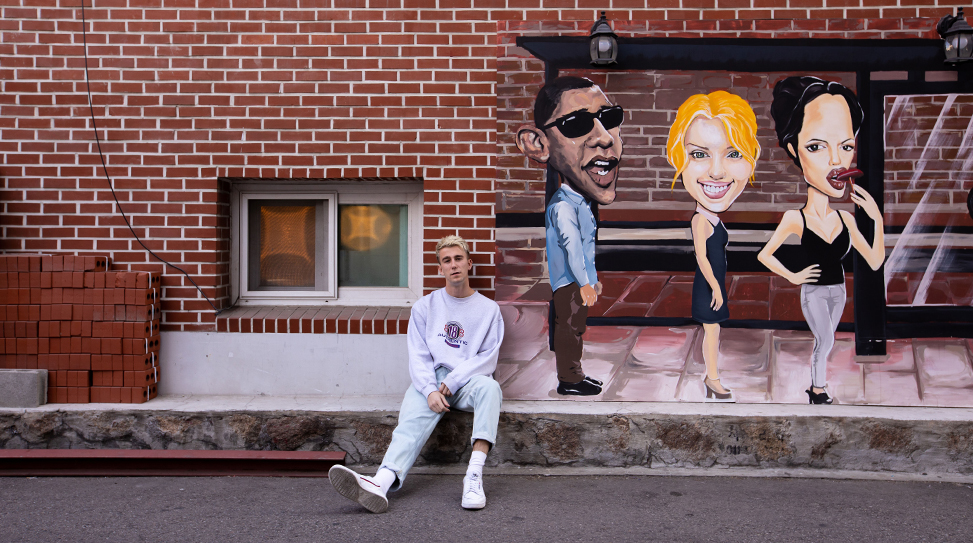

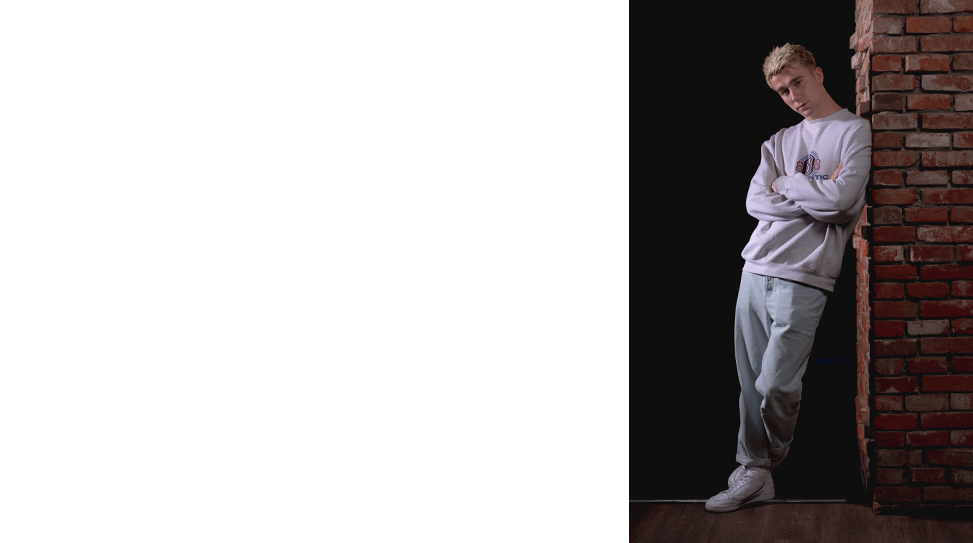
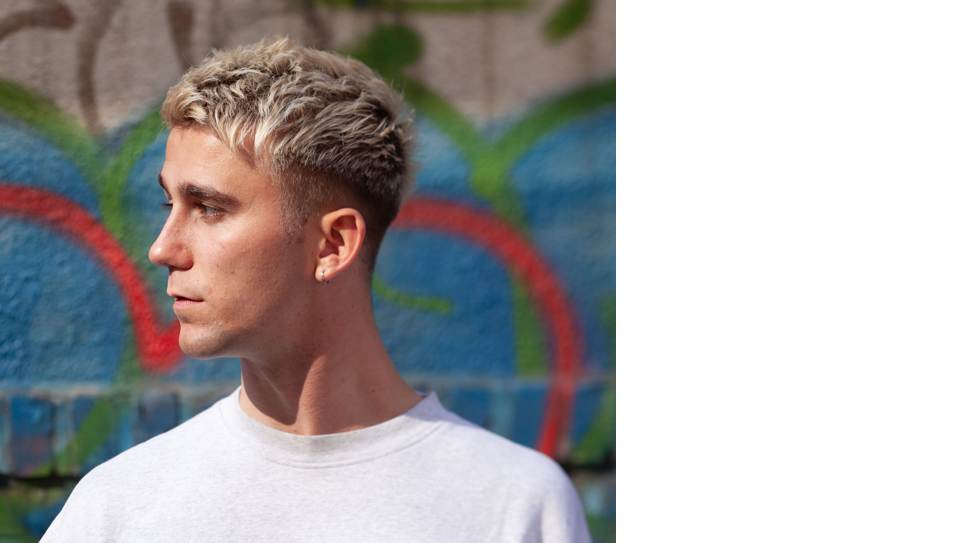
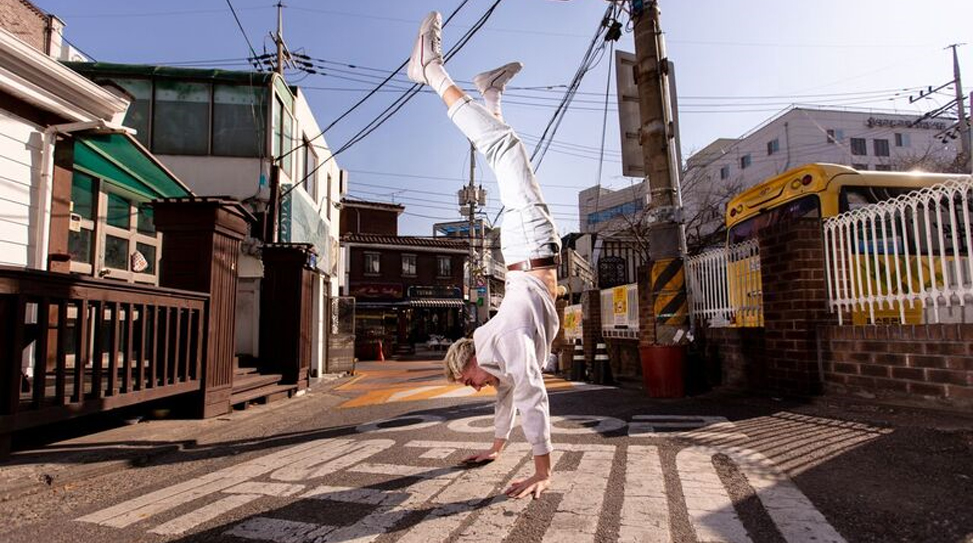
 A Conversation with James Paxton
A Conversation with James Paxton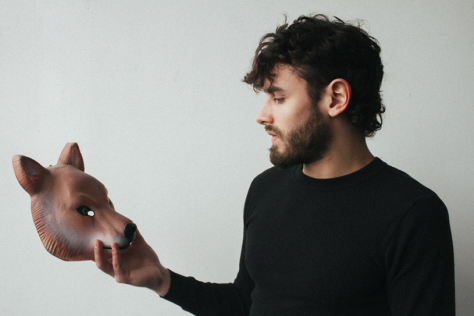 Vital Stats: Allan Rayman
Vital Stats: Allan Rayman
No Comments